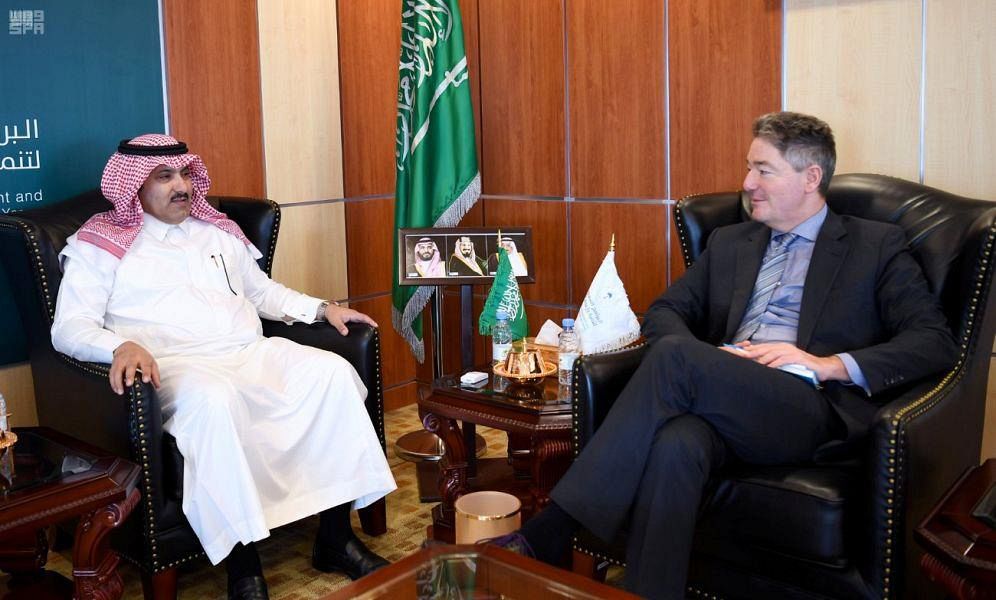
British Ambassador to Yemen Michael Aron accused the Iran-backed Houthi militias of hindering the delivery of food aid to the Yemeni people, which is aggravating the country’s humanitarian crisis.
He did, however, hail the undeclared truce that was announced in Yemen, saying it will lay the foundation for the upcoming peace consultations that are scheduled for Sweden before the end of the month.
Aron told Asharq Al-Awsat that United Nations Security Council resolution 2216 is the main basis for a solution and negotiations in Yemen. The draft resolution that was presented by the UK to the Security Council does not substitute resolution 2216.
The draft tackles humanitarian aspects of the conflict, not political ones, he clarified.
Asked about the preparations for the Stockholm talks and the extent of the Houthis’ commitment to attend them, Aron replied that UN special envoy for Yemen, Martin Griffiths, was leading a good team and that the upcoming consultations are very important for the country’s peace and stability.
He believed that both sides of the conflict were serious in participating in the consultations, adding that London welcomes the Houthi announcement that they were ceasing ballistic missile and drone attacks.
The Houthis claim that they are serious about peace, but it is important for them to translate this stance at the negotiations and on the ground, he remarked.
The last round of consultations were held in Geneva in September. The Houthis did not attend the talks, making last-minute demands that doomed the consultations to failure.
Asked about the repercussions should any of the concerned parties fail to attend the new round of consultations, Aron warmed that the international community’s reaction will be strong.
He added, however, that he was optimistic that all sides involved will head to Sweden.
Moreover, he cited the recent tour of the region by British Foreign Secretary Jeremy Hunt, saying it was successful because it led to an agreement over the evacuation of wounded Houthis so that they could receive medical treatment.
This was one of the main issues that had hindered the militias’ participation in the Geneva talks and it has now been resolved, noted the ambassador.
Hunt had held talks during his visit with Custodian the Two Holy Mosques King Salman bin Abdulaziz and Crown Prince Mohammed bin Salman in Riaydh. He also met with Abu Dhabi Crown Prince Sheikh Mohammed bin Zayed Al Nahyan in Abu Dhabi.
The Saudi and Emirati officials expressed to Hunt their desire for peace and stability in Yemen, adding that they supported Griffiths’ mission, Aron told Asharq Al-Awsat.
Turning to the unofficial ceasefire in Yemen, he said that the developments on the ground indicate that it was being upheld. The Arab coalition, though, does not appear too keen on the truce because it believes that it will ease the pressure off the Houthis.
It believes that military pressure is important in pushing them towards heading to negotiations, he explained.
Asked about Yemeni criticism against the international community, including Britain, that it only acts when the Houthis are being cornered, he replied that since the eruption of the crisis, London sought to issue resolution 2216, which condemns the militias.
He added that London also recognizes the government of President Abdrabbuh Mansur Hadi and stands by the Arab coalition.
He stressed that Houthi attacks and their occupation of Yemeni regions is a catastrophe. A political solution is necessary for the problem
It is laughable for the Houthis to believe that Britain is their ally, Aron added.
Furthermore, he condemned in the strongest terms ballistic missile and drone attacks against Saudi Arabia and the United Arab Emirates. The use of Sanaa airport for these attacks is unacceptable. The facility should be used for civil, not military purposes.
On Saudi efforts to support Yemen, he noted that Kingdom was its greatest financial backer.
Addressing Hunt’s recent visit to Tehran, the ambassador said that London believes that Iran is part of the problem in Yemen and it hopes that it can instead be part of the solution.
It would be better for the Iranians to withdraw from Yemen and leave the Yemeni parties to solve their problems themselves, he stressed.







